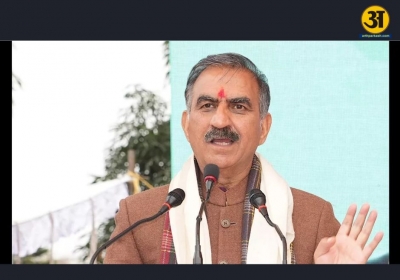
The repo rate has remained at 4% for the eleventh time
RBI Monetary Policy: The repo rate has remained at 4% for the eleventh time
RBI Monetary Policy 2022: RBI Governor Shaktikanta Das declared on Thursday that the Reserve Bank of India's (RBI) Monetary Policy Committee (MPC) held the repo rate constant at 4% for the tenth straight meeting while maintaining a 'accommodative stance' as long as necessary.
The MPC voted unanimously 5:1 to retain the accommodative posture, according to the central bank governor, and the reverse repo rate was also kept steady at 3.35 percent.
The Marginal Standing Facility (MSF) rate and bank rate also remained unchanged at 4.25 percent.
This is the first MPC meeting after the Budget 2022-23 was presented in Parliament on February 1.
On May 22, 2020, the central bank dropped the interest rate on its policy repo rate, or short-term lending rate, to a historic low in an off-policy cycle to boost demand.
During the address on the RBI’s important decisions, Das stated that India is charting a different course of recovery from rest of the world and the country is positioned to expand at quickest speed year-on-year among major economies as per forecasts by IMF. This recovery is aided by widespread immunisation and ongoing financial and monetary assistance.
In terms of the economy, Das stated that real GDP growth is expected to be 7.8% in the fiscal year 2022-23. (FY23). According to the governor of the Reserve Bank of India, real GDP growth of 9.2% in the current fiscal year (FY22) will lift the economy above the pre-pandemic level.
The bi-monthly policy is being implemented against the backdrop of the Budget, which forecasts a nominal GDP of 11.1 percent for FY23. The bi-monthly policy is in line with the Budget, which projects a nominal gross domestic product of 11.1 percent for 2022-23.
The CPI inflation prediction for the current financial year 2021-22 (FY22) has been kept at 5.3 percent, while retail inflation for the next fiscal year (FY23) is projected at 4.5 percent, according to the RBI governor. The RBI predicts a 4.9 percent CPI in Q1 FY23, a 5% CPI in Q2, a 4% CPI in Q3, and a 4.2 percent CPI in Q4. He stated that the CPI is in line with forecasts, and that the lowering of food prices would contribute to the optimism, but that a big upside risk is the hardening of crude oil prices.
How economists and market experts reacted:
Sujan Hajra, Chief Economist and Executive Director at Anand Rathi Shares & Stock Brokers,
"The RBI remained more worried about growth than inflation and hence kept its policy rates steady," he said. The stance of monetary policy remains accommodating as well. We believe the RBI has enough room to conduct a symbolic 15 basis point reverse repo rise to indicate rate normalisation, a determination to stay on top of the inflationary environment, and to maintain Indian monetary policy in line with global trends. The rate hike is expected to begin at the next MPC meeting. The monetary policy stance, on the other hand, is likely to remain accommodative."
V K Vijayakumar, Chief Investment Strategist at Geojit Financial Services,
"By maintaining the existing accommodative attitude and sustaining the current repo and reverse repo rates, the RBI has once again voted for growth," he added. Despite the risk of being accused of being behind the curve, the RBI governor has stated unequivocally that "sustained policy support is essential for a lasting and broad-based recovery." At this point in time, a clear pro-growth posture is desirable."
Shishir Baijal, Chairman & Managing Director at Knight Frank India,
"At this critical juncture, when the economy is still recuperating from the uncertainty caused by the third wave of pandemic, RBI's decision to maintain the policy interest rate is a positive gesture," he said. There are still some growth concerns in the economy, but the RBI's accommodative monetary policy will help the economy thrive. Low interest rates will aid in enhancing affordability and maintaining the growing momentum in the housing sector, which has shown a good recovery from the credit crisis. The continued revival of the housing sector will have a powerful multiplier effect on overall economic growth."
Adhil Shetty, CEO at Bankbazaar.com,
"The repo rate has been stalled for over two years," he remarked. The general consensus has been that rates will begin to rise as a result of inflationary pressures. For the time being, this has not occurred. In reality, the Governor's remark indicated that inflation will remain stable. This indicates that, barring minor tweaks, interest rates on FDs and loans will not rise for the time being. For the time being, debt funds should do well, with short-duration funds proving to be the safer pick."





